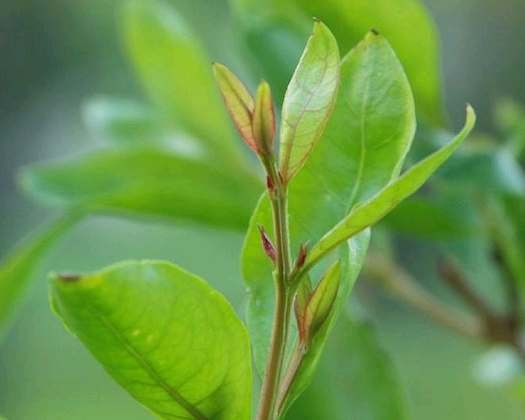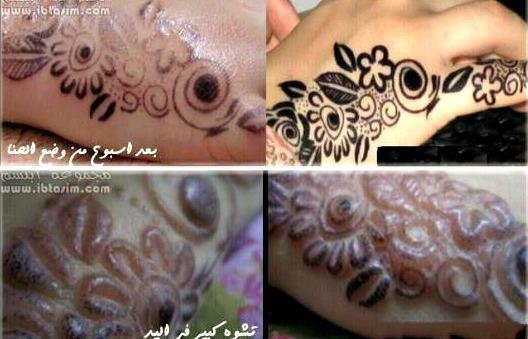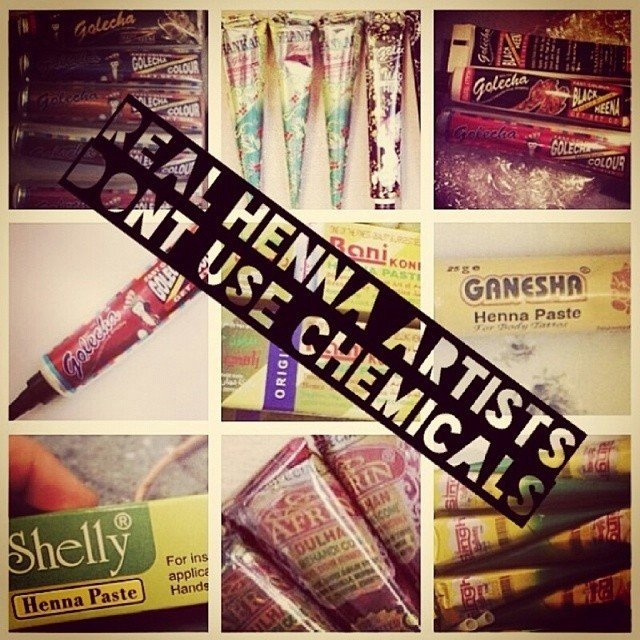Que es la Henna / What is henna?
Que es la henna?
Henna, es el nombre popular que se le da a la planta Lawsonia inermis, esta planta, contiene una molecula llamada Lawsone, que tiene la capacidad de penetrar y teñir en el tejido de la piel, en las hebras capilares y en las uñas, creando un color rojizo, en la piel su permanencia es temporal, ya que esta naturalmente se exfolia; En las uñas y el cabello su efecto es permanente. Henna ha sido usado desde tiempos ancestrales como un cosmetico natural.
What is henna?
Henna, is the popular name given to the plant Lawsonia inermis, it contains a molecule called Lawsone, which has the capacity of staining the skin tissue, hair, and nails, creating a reddish tone, it stain the skin temporarely, as it naturally exfoliates itself; On nails and hair it stays permanently. Henna has been used since ancient times as a natural cosmetic product.

Arte Corporal
Como soy una artista de henna, en esta oportunidad, me voy a enfocar a comentarles acerca del arte corporal que se realiza con esta planta.
Probabalemente hayas visto un arte muy precioso e intricado, cuando se trata de bodas o ceremonias de diferentes culturas tales como la hindu, arabe o marroqui, entre otras ; Generalmente henna es aplicada en muchas culturas orientales como ceremonia o ritual, se dice que trae buena suerte a quien la lleva en la piel.
En los Estados Unidos, con la gran variedad cultural que existe actualmente la henna se ha vuelto algo muy popular, lo que hace que en America Latina tambien se este adoptando como moda este arte corporal tan magico.
Body art
As I am a henna artist, in this opportunity I'm going to focus in sharing some info about henna body art.
You`ve probably seen a very precious and intricate art, in weddings and ceremonies from different cultures such as hindu, arabic or morroccan, among others; Usually henna is applied in many oriental cultures in ceremonies or rituals, it is said to bring good luck to the wearer.
In the USA, whith the diversity of cultures that currenty exists, henna has become very popular, and this magical body art is becoming a trend in Latin America.

Que esperar de la pasta de henna?
Como ya vimos, la henna es una planta, una vez cosechada, sus hojas son machacadas hasta ser un polvo fino, de color verde, que los artistas lo mezclamos con agua, te o jugo de limon, azucar y ciertos aceites esenciales (monoterpenos) como por ejemplo el de lavanda es mi preferido, una vez formada la pasta, se deja curar unas cuantas horas, hasta que la henna libera su tintura natural, entonces la empacamos en conitos que generalmene son de papel celofan (algunos artistas prefieren otros metodos de aplicacion como botellitas luer-lock o jeringas de vidrio, que NO lastiman la piel)
Una vez aplicada la henna en la piel, esta se ve de un color marron oscuro, luego la pasta se empieza a secar y se cae de la piel naturalmente (quebrandose), el primer color que percibiremos va a ser un naranja vibrante, que con el pasar de las horas (48-72hs) se oscurece hasta llegar a un color que va desde el marron al bordeaux oscuro. La intensidad del color depende de donde este aplicada la henna, (manos y pies siempre tienden a tomar un color mas profundo) de tu tipo de piel, y del cuidado que se le da a la henna (se recomienda MANTENER LEJOS DEL AGUA, Y CLORO , y usar aceite vegetal sobre la piel antes de la ducha, para proteger a la henna del agua ). El diseño dura en la piel de una a tres semanas, y se desvanece naturalmente.
What to expect from the henna paste?
As we already discussed, henna is a plant, once harvested, the leaves are crushed into a fine green powder, us, henna artists mix the powder with water, tea or lemon juice, and certain essential oils (monoterpenes) as lavender, which is one of my favorite ones, once the paste is mixed, we let it sit for a couple of hours until the natural dye is released, then we pack it up in small cones that are generally made out of cellophane paper (other artist may use luer lock bottles or glass syringes that DO NOT hurt the skin).
Once that the henna is applied on the skin it looks dark brown, after the paste dries, it falls off the skin naturally (cracking off), the first color that you'll see will be a bright orange, that will naturally darken (48-72hs) to a brown, reddih color, the intensity of the color will depend on: where the henna is applied ( hands and feet get the darkest tones), skin type, aftercare (It's recommended to KEEP IT AWAY FROM WATER AND CHLORINE, as much as possible, and applying vegetable oil on the area before the shower, to keep the water away). The design lasts on the skin from 1-3 weeks and it fades off naturally.

Advertencia: ''Henna" negra y PPD
Como ya hemos visto, la henna tarda unos cuantos dias en oscurecerse y aunque se puede llegar a poner bien oscura la HENNA NUNCA ES NEGRA, Y NUNCA DA UN COLOR INSTANTANEO, esto es muy importante, ya que en el mercado existen conos de henna industrializados, que son ALTAMENTE RIESGOSOS para la salud, pero, porque?
La industria que realiza estos conos suele incorporar a la henna tinturas quimicas, solventes muy fuertes , y a veces PPD'S (Para-fenilenodiamina), componente que hace que la henna se torne de color negro, es extremadamente peligroso en contacto con la piel ya que puede causar severas alergias, cicatrices y hasta cancer.
Black ''henna'' and PPD warning
As we have already review, henna takes a couple of days to darken, and even that it can get pretty dark, HENNA IS NEVER BLACK, NEITHER INSTANT, this is very important, because in the market there exist industrialized cones, that are HIGHLY DANGEROUS for the health, but why?
The industry that produces these type of cones usually adds chemical dyes, strong solvenrs, and sometimes PPD'S (Para-phenylenediamine), component that makes henna turn black, it is extremely dangerous in contact with the skin, and it can cause severe allergic reactions, scarring, and even cancer.

Como saber si le henna que mi artista usa es natural?
Simplemente preguntandole a tu artista que ingredientes hay en la henna que este usando, generalmente son muy pocos ingredientes, como les nombre antes, igual lo repetire:
.polvo de henna
.agua, te o jugo de limon
. azucar
.aceite esencial de lavanda, eucalipto o arbol de te.
Eso es todo! si tu artista se niega a decirte los ingredientes, o dice que su receta es "secreta" NO DEJES QUE APLIQUE SU PRODUCTO EN TU PIEL!
Aqui abajito dejo una foto de como se ven los conos pre-hechos.
TIP : los conos quimicos HUELEN HORRIBLE ( y muy fuerte, como a trementina)
How can I tell if my artist is using natural henna?
Simply ask your artist what's in the henna paste they've mixed, they are usually a few ingredients, I`ve already mentioned it but here it goes again:
.henna powder
. water, tea or lemon juice
.sugar
.essential oil such as: lavender, eucalyptus or tea tree.
That's it! if your artist denies to tell you what`s on their henna paste or tells you that their recipe is "secret" DO NOT LET THEM APPLY THEIR PRODUCT ON YOUR SKIN!
Down here I'm posting a picture of how pre-made, chemical cones look like.
TIP: chemical cones STINK! (and really strongly, like turpentine)

Espero que les haya gustado, y gracias por leer esto <3
I hope you guys like it, and thank you for reading. <3
All other pictures are created by @danilamarilu at pintodaniluz.wixsite.com/luzvidayarte
Very cool, maybe you will be interested in my work
Thanks @vikaart, I`ll check it out :)
Interesante articulo sobre la henna y su utilización en la piel. Aca en Argentina se usa a veces para tapar las canas y mucha gente que es alergica a los productos cosmeticos, como tinturas para el cabello, lo usa. Me gusto el arte en la piel, ancestral y casi magico. Gracias!
Recien leo este comentario ! Gracias @alitas, yo soy de Argentina y no habia sabido de la existencia de la henna hasta que llegue a USA, yo tmb la utilizo en el pelo ya que es un gran acondicionador natural y le da brillo, volumen y color (rojizo) al cabello!